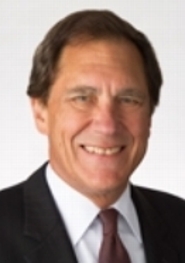
Ambassador Karl Inderfurth first became interested in the long-term trajectory of India’s status in the world when he was searching through the State Department’s oral archives and came across a collection of recordings featuring Chester Bowles, former Ambassador to India during the 1950s and 1960s. In these recordings, Bowles lamented the ways in which successive presidential administrations – from Eisenhower through Nixon – had almost completely ignored India when setting foreign policy agendas and approaching international affairs.
At the time, Bowles claimed India would soon rise to be one of the major players on the international stage and that the United States was mistaken in not doing more to foster a relationship. Unfortunately, his contemporaries largely ignored him. However, as Ambassador Inderfurth proposed in his lecture, history will likely prove Bowles correct as India may now be poised to become the world’s next great superpower.
In evaluating India’s status in the international community, Inderfurth began by highlighting key points that have led to the dramatic transformation of India in a relatively short amount of time. He claims it began with the end of the Cold War and the dissolution of the Soviet Union in the early 1990s.
The dramatic implications for the international community opened new geopolitical opportunities to India and, shortly after, India was able to hit what Inderfurth called an “economic threshold” which consisted of economic reforms and liberalization that boosted India’s status as a major economic power. With over a billion citizens and a resource-rich nation, India emerged on the world stage in the mid 1990s as a country that could no longer be ignored.
Drawing upon his previous experiences at the State Department and the United Nations, Inderfurth was then able to give an insider’s account of how U.S.-India relations have been nurtured over the past two decades. He praised Washington for its bipartisan approach to India, pointing out how President Clinton’s initiative to revive diplomatic friendship with India was continued and expanded by President Bush and how today, President Obama has inherited the mission with similar enthusiasm. For the first time, under the Obama administration, an American president now publicly calls for India to be considered for a permanent seat on the U.N. Security Council, an endorsement Ambassador Inderfurth pointed to as the pinnacle thus far of U.S.-India relations.
So is India the world’s next superpower? Inderfurth would not give a direct answer and instead simply left his audience with signs that pointed to the affirmative. For example, he cited a report recently released by the National Intelligence Council which predicts India overtaking China as the greatest emerging economy by 2030 so long as India can find a way to train its workforce and invests in its infrastructure.
Inderfurth also told an anecdote about a conversation he had with the Indian Ambassador to the United States. When he asked her directly if India is poised to become the next superpower, she expressed disdain for the term “superpower” but invited Inderfurth to ask her again in 10 years. In conclusion, Inderfurth gave his audience the same advice. India has potential to become the next superpower; time will show if this potential is seized.
